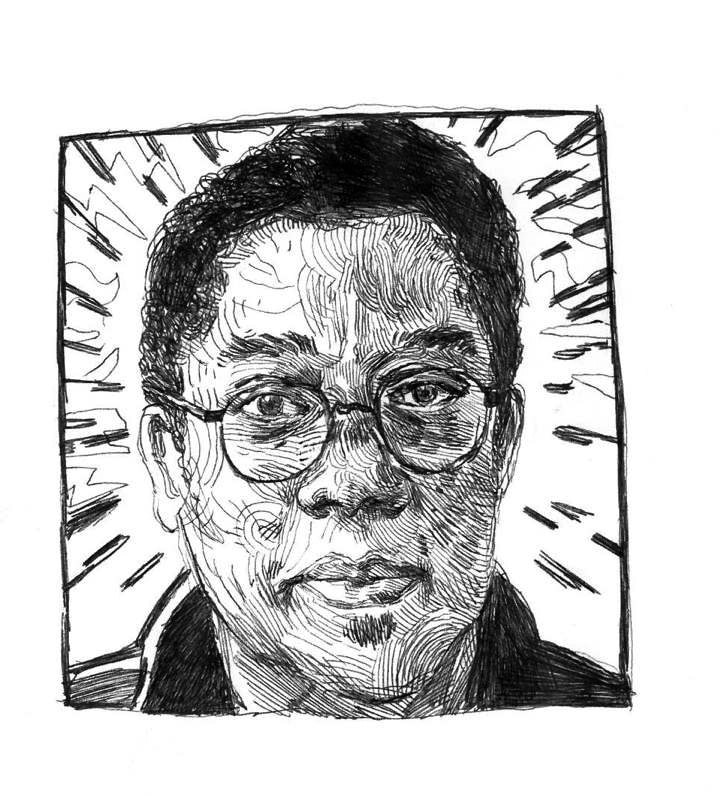I’ll admit it: I had never heard of André Alexis before this past Monday night. I sought out the alliterative mystery man at the Owens Art Gallery, where he read from his body of work, including the 2015 literary smash hit Fifteen Dogs. What I found there was an unexpectedly rich experience that left me wandering back to meal hall in a state of deep contemplation.
Originally from Ottawa, Alexis is a Trinidadian-Canadian novelist, essayist and playwright. He is a recipient of the Giller Prize, one of Canada’s foremost literary awards, and is hailed as one of Canada’s most promising emerging authors.
The main focus of his presentation at Mount Allison was a series of books he is currently completing. He calls the series a “quincunx,” an ancient word that refers to a configuration of five points with one in the centre, like on a die.
When Alexis moved into place behind the podium, the soft, enchanting nature of his voice seemed to heighten the atmosphere. After prefacing that he did not know how he might react to reading his work aloud, he spoke of three themes “essential” to his work: place, God and love. He related his own sense of alienation and loneliness, largely due to the abandonment by his parents when they left for Canada when Alexis was between the ages of 2 and 4.
Alexis spoke with a profound sense of wisdom. “I’ve always been partial to the dreamlike,” he said, during an astonishingly introspective bout of improvised storytelling to introduce his readings. “I am obsessed with storytelling … its byways [and] traditions,” he added.
When he launched into the first selection, I was immediately impressed by his innovative fusion of genres. The passage, written in simple language, took place in a medieval European hamlet and featured a talking sheep’s message to a young shepherd: the sheep was God. It became clear that this was far from a stuffy lecture by a professional scholar.
Next came a reading from the Giller prize winner, Fifteen Dogs. Set in contemporary Toronto, this novel also follows the story of animals imparted with human consciousness. After a night of drinking in a downtown bar, Apollo and Hermes make a bet: Apollo wagers Hermes a year of servitude that if he gives 15 dogs in the Roncesvalles neighbourhood human consciousness they will all live to be more unhappy than humans. Powerful messages of philosophy, spirituality and creativity were embedded in the story. I became determined to purchase the book in the near future.
During the following question period, elderly hands began to rise like shoots of grass and as Alexis answered them, he led us deeper into his personal belief system, experiences and creativity.
One among the many epic quotes Alexis blessed us with that evening was: “Art is a wonderful signpost to what the human is.” Alexis’s approach to the issue of race in his work, repeatedly brought up by members of the audience, was debated and noted for its understatedness.
I was strongly inspired by my experience at the Owens, as I have been by past speakers here at Mt. A. Alexis has much to offer and I was glad to become acquainted with such an important Canadian literary figure.






